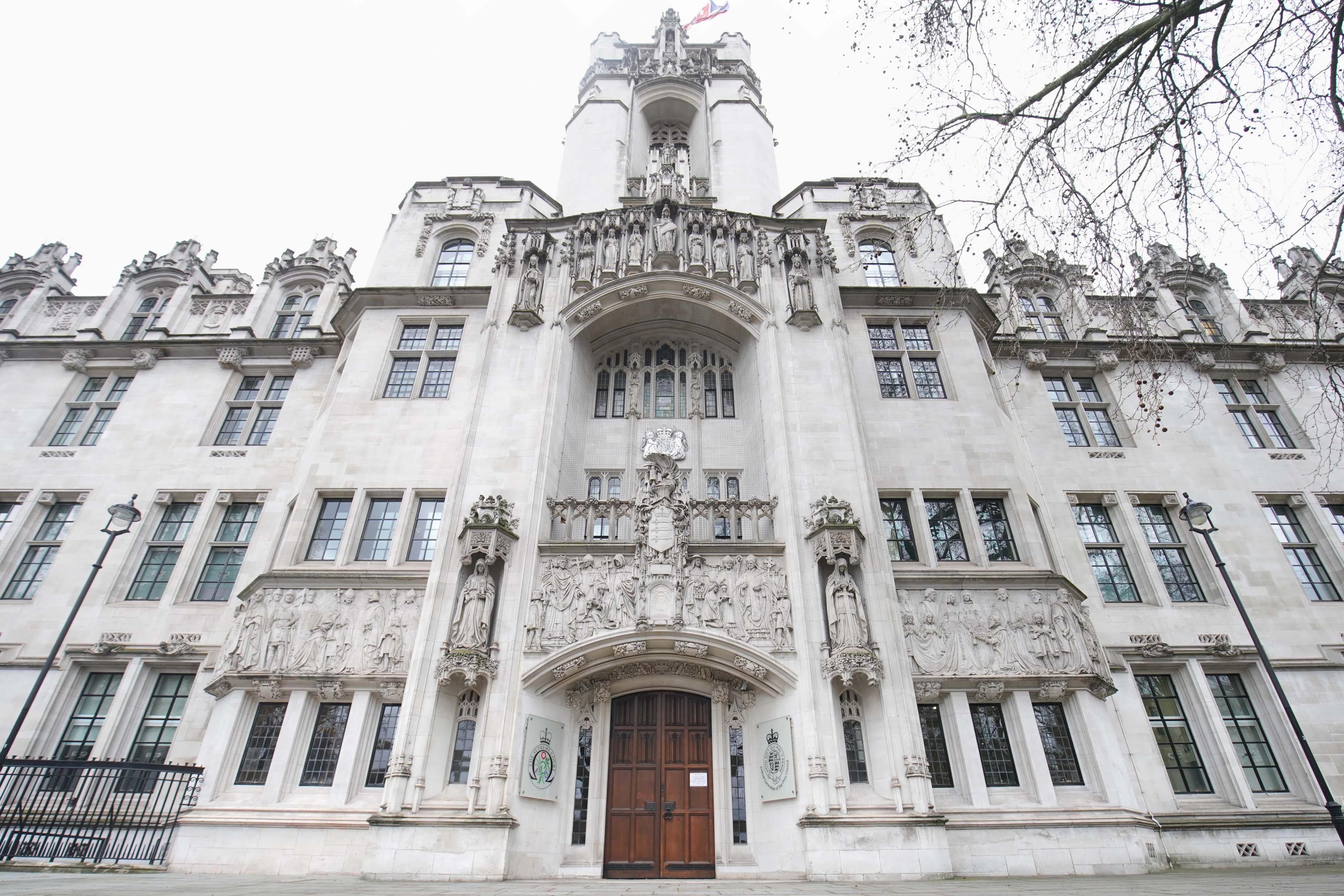Sex change recognised in eyes of law with gender recognition certificate, Scotland tells Supreme Court
Judges at UK’s highest court will rule on whether trans women should be considered female under the 2010 Equality Act in landmark case

Your support helps us to tell the story
From reproductive rights to climate change to Big Tech, The Independent is on the ground when the story is developing. Whether it's investigating the financials of Elon Musk's pro-Trump PAC or producing our latest documentary, 'The A Word', which shines a light on the American women fighting for reproductive rights, we know how important it is to parse out the facts from the messaging.
At such a critical moment in US history, we need reporters on the ground. Your donation allows us to keep sending journalists to speak to both sides of the story.
The Independent is trusted by Americans across the entire political spectrum. And unlike many other quality news outlets, we choose not to lock Americans out of our reporting and analysis with paywalls. We believe quality journalism should be available to everyone, paid for by those who can afford it.
Your support makes all the difference.An individual with a gender recognition certificate is seen as having changed sex in the eyes of the law, a lawyer representing the Scottish government has told the Supreme Court.
Ruth Crawford KC made the arguments during the Supreme Court’s hearing of a milestone legal challenge over the definition of what it means to be female.
The landmark case - which began on Tuesday - follows an ongoing debate between the Scottish government and campaigners.
The verdict will determine whether trans women should be considered female under the 2010 Equality Act as the case seeks to decide if sex amounts to the biological sex you are born with or your gender identity in the eyes of the law.
Ms Crawford told the court an individual with a gender recognition certificate (GRC) - a document she described as legally recognising a change of sex and gender - is entitled to the “protection” afforded to their acquired gender as set out in the 2010 legislation.
“We submit there are only two sexes or genders, and a person whose sex becomes that of a man or woman in consequence of a GRC belongs to that sex, and will have the protection afforded under the Equality Act”, she said.
The could have far-reaching ramifications across the UK on how single-sex spaces operate and human rights campaigners have raised fears the case may impact trans women’s rights and their ability to challenge discrimination.
A change of legal status has been effected, so that person becomes recognised in law as belonging to, or becoming, the sex of their acquired gender.
Ms Crawford said a woman with a gender recognition certificate which states she is female is entitled to those protections “just as much as others enjoy those protections who are recorded as a woman at birth”.
She added the reverse also applies, and a person who has become a man would lose those same protections, explaining it would be “strange” for someone to retain them after meeting the “onerous conditions” required to qualify for a gender recognition certificate.
These include, the court heard, living with gender dysphoria for two years, and “an intention to continue living in the acquired gender until death”.
Ms Crawford told the court by effecting a change in legal status, a gender recognition certificate has “far-reaching consequences” and is more than “just some legal fiction” or of “symbolic value”.
She said: “A change of legal status has been effected, so that person becomes recognised in law as belonging to, or becoming, the sex of their acquired gender.”
She added a gender recognition certificate is “no more a legal fiction than adoption”, saying an adopted person is treated in law as the child of their adopter and nobody else.
She also said the “inevitable conclusion” of the For Women Scotland challenge, if successful, is that trans women with gender recognition certificates would “remain men until death for the purposes of the Equality Act”.
Ms Crawford told the court since the Gender Recognition Act was passed in 2004, 8,464 people in the UK had obtained a gender recognition certificate - which she said was an average of 420 people each year.
She said this “very small number” should “allay” concerns about any impact on “public sector equalities duty obligations”.
Join our commenting forum
Join thought-provoking conversations, follow other Independent readers and see their replies
Comments